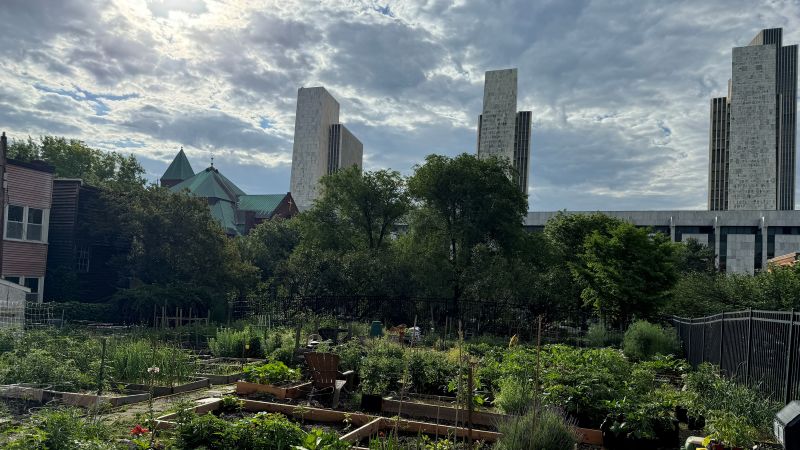
Why more Americans are gardening as Trump returns to the White House
CNN
Just two days after Election Day, Maggie Mosher, a retired history teacher based in San Jose, California, began setting up raised beds to build a winter garden in her backyard. Never before had Mosher contemplated growing food in the winter as well as the peak growing months of the spring and summer.
Just two days after Election Day, Maggie Mosher, a retired history teacher based in San Jose, California, began setting up raised beds to build a winter garden in her backyard. Never before had Mosher contemplated growing food in the winter as well as the peak growing months of the spring and summer. Part of the impetus for the winter garden was to take her mind off the presidential election results, which she said left her feeling “overwhelmed and too depressed.” The other part: “To try to be a little proactive.” That’s because President-elect Donald Trump has promised to deport immigrants who have crossed the border illegally, many of whom play a crucial role in helping get food from farms onto store shelves. He has also threatened to institute blanket tariffs, with some of the steepest floated rates on Mexico, a top source of produce for the US. That means Americans could be forced to pay a lot more for fruits and vegetables. To get around that, more Americans want their own food supplies to tap into, creating a budding trend of people doubling down on gardening efforts. The prospect of higher food costs, especially as someone living on a fixed income, is a huge source of concern for Mosher. Growing her own broccoli, cabbage, cauliflower, peas, potatoes and carrots is a small but meaningful way to alleviate some of the financial burden she could face, she told CNN. Still, she recognizes, “it’s not like growing a head of cauliflower is going to save my budget.” Likewise for the freezer she bought post-election to start stockpiling meat and broths, which she inspired her sister to do as well.













